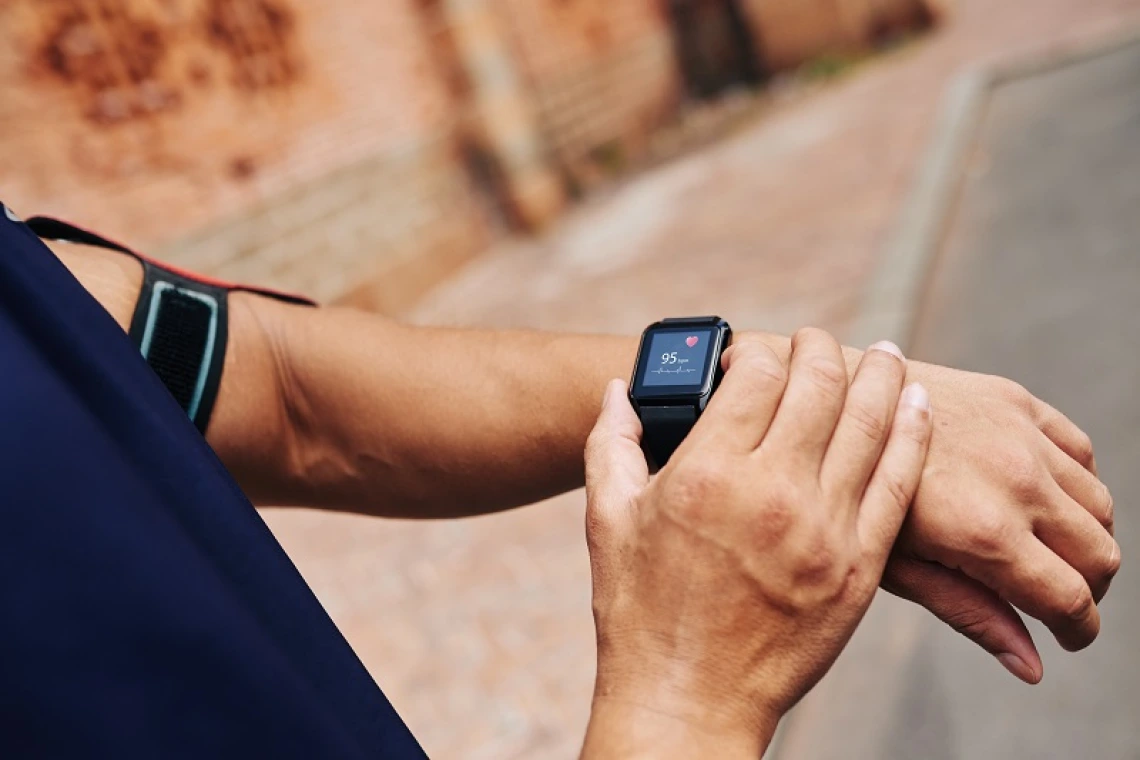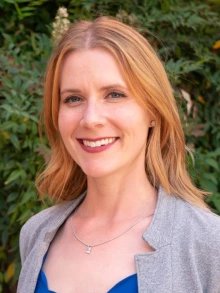UArizona Nursing Professor Receives Grant to Support Future Telehealth Innovations in Southern Arizona

University of Arizona College of Nursing Assistant Professor Meghan Skiba, PhD, MS, MPH, RDN, has been selected as the recipient of a $7,500 2022 Making Action Possible (MAP) Grant from the UArizona Eller College of Management. The funds will enable Dr. Skiba to work with a nursing PhD student and a graduate student in Geography on a research project titled “Uptake and Utilization of mHealth in Southern Arizona: The Role of Social Determinants of Health and Influence on Chronic-Disease Preventive Health Behaviors and Health Status.”
“I am excited by the opportunity to collaborate with Eller on this interdisciplinary project and connect individuals with various skills to inform healthcare delivery and ultimately improve health of Southern Arizonans and related economic impacts,” Dr. Skiba says. “It will highlight the interconnectedness of technology, health, and economy in Southern Arizona.”
“I am excited by the opportunity to collaborate with Eller on this interdisciplinary project and connect individuals with various skills to inform healthcare delivery and ultimately improve health of Southern Arizonans and related economic impacts. It will highlight the interconnectedness of technology, health, and economy in Southern Arizona," ~ Meghan Skiba, PhD, MS, MPH, RDN
The project, which will span the fall 2022 semester, will utilize public datasets and GIS mapping to characterize and predict mHealth usage specifically among Southern Arizonans. The hope is that the results from this research – including a white paper on the MAP dashboard that will be publicly accessible to anyone to inform their programs and policies -- will support future telehealth innovations in healthcare delivery in Southern Arizona. Once the primary research is published, a webinar hosted by Eller will present the results and engage with community members and the MAP advisory board.

Meghan Skiba, PhD, MS, MPH, RDN
Can you tell us about the genesis of this project?
This project originated out of filling a need for Southern Arizona through Eller’s MAP Dashboard. The MAP Dashboard site provides Southern Arizona with information on social and economic indicators in our local community that can inform programs and policies. As a researcher, I have seen a clear gap in our development of telehealth interventions and our understanding of who can access and reach these interventions, through this project we hope to create a bridge that will improve health locally.
Can you tell us about the roles that mHealth have played up to now in Arizona health care?
Currently little is known specially about mHealth use, including ownership and use of smartphones, health-related mobile applications, and wearable devices specifically for Southern Arizonans and it has been unclear if national trends are accurate for our unique environment. In the setting of COVID-19, telehealth utilization rapidly accelerated, and now more healthcare services are available through mHealth.
How will the results from this research support future telehealth innovations in healthcare delivery in Southern Arizona?
Completion of this project will provide guiding data and insights that can be used by University of Arizona researchers and community stakeholders in Southern Arizona. This data will help with the implementation of novel approaches to address social determinants of health and chronic disease prevention using mHealth and connect academia, industry, clinician, non-profits, healthcare organizations, and public health professionals to develop precision mHealth. My hope is that the results from our study will be used to support the design of multilevel and holistic telehealth interventions.
How will you select the Nursing student and Geography student who will take part in the project?
A PhD student in Nursing, Carlie Felion, was connected with the project through a graduate course during the grant writing process and was involved in the submission process. As a Co-I on the project, she helped develop the proposal and throughout the project period she will support interpretation and communication of our results. Carlie was a great match for this project due to her interest in digital health and experience as a family and mental health nurse practitioner. For Geography, I am working with Andrew Grogan, the assistant director of the UArizona’s Geography Information Systems Technology program to develop a paid internship opportunity as part of their course requirements as well as reach out to their alumni network to match interests and skills to analytical needs. Andrew has been a tremendous ally in the realization of this project.
Can you share your hypothesis as you approach this project?
Our hypotheses are that mHealth use will have increased overtime in Southern Arizona, that social determinants of health will influence who is using mHealth and that mHealth users in Southern Arizona will engage in more chronic-disease preventive behaviors – for example, eating fruits and vegetables, being physically active, avoiding alcohol and smoking -- resulting in higher perceived health status.
Once this project is completed, are you contemplating next steps in the future?
After this project is completed, this information can be used to develop tailored mHealth multilevel interventions -- those that include the individual and their connections -- that considers and addresses social determinants of health to reduce health disparities. Engaging with community partners, this information may further shape local policies related to access of technology and healthcare. Future research can explore the relationships of mHealth and social determinants of health on cancer screening behaviors and chronic disease burden.

